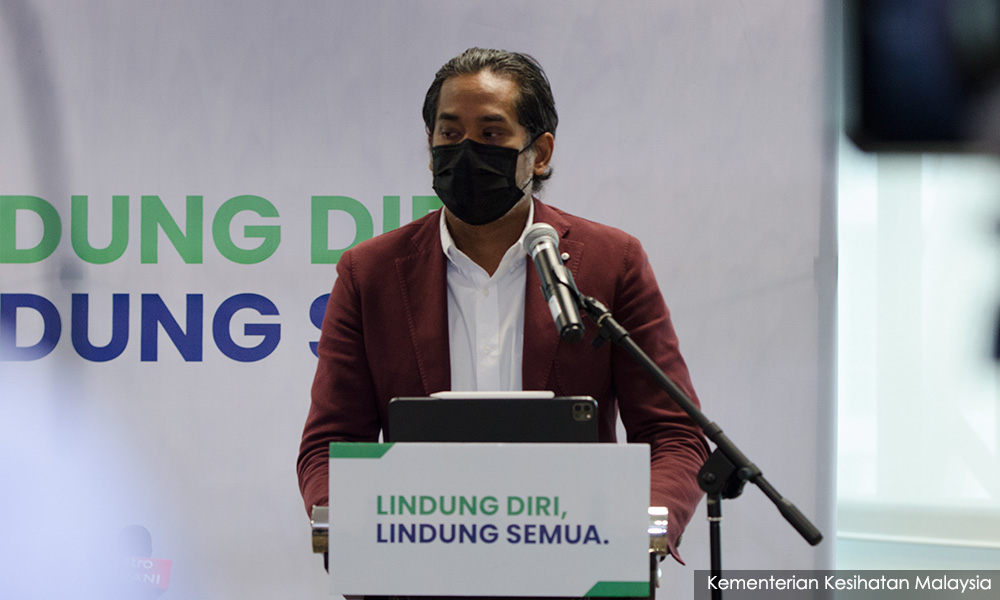COVID-19 | The Drug Control Authority (DCA) has granted conditional approval for the Covid-19 vaccines developed by British firm AstraZeneca and the Chinese firm Sinovac.
“This conditional approval requires registration holders to provide the latest and additional data through rolling submissions to the National Pharmaceutical Regulatory Agency (NPRA) for evaluation.
“This ensures the safety and efficacy of the vaccines are always up-to-date and continue to provide greater benefits over risks,” Health Ministry director-general Dr Noor Hisham Abdullah said in a statement today.
The approval is specifically for AstraZeneca’s ChAdOx1-S vaccine manufactured by Medimmune Pharma BV in the Netherlands and Sinovac’s CoronaVac vaccine manufactured by Sinovac Life Sciences Co Ltd.
Noor Hisham said the NPRA is still evaluating Pharmaniaga LifeScience Sdn Bhd’s fill-and-finish facilities in Puchong, Selangor.
The company has purchased 14 million doses of CoronaVac in bulk and will be repackaging it into smaller bottles at the facility, 12 million doses of which have been booked by the government for its immunisation program.
Meanwhile, on Twitter, Coordinating Minister for the National Covid-19 Immunisation Programme Khairy Jamaluddin explained that the Puchong factory still requires NPRA approval before the Pharmaniaga-finished vaccines can be used.
While approval is still pending, however, he said he had asked Sinovac to send some finished vaccines from its China factory so it can be included in Phase One of Malaysia’s Covid-19 vaccination programme.
Likewise, the minister said the AstraZenaca’s vaccine for the Asia Pacific market would be manufactured in Thailand rather than in the Netherlands. The Thai factory will require a separate NPRA approval too before the vaccines can be used.
“This is to ensure the factory meets with quality standards, including Good Manufacturing Practice requirements. We are waiting for AstraZeneca to submit the dossier of the Thai factory (to the NPRA),” he said.
The NPRA is also evaluating another vaccine developed by Russia’s Gamaleya National Research Centre for Epidemiology and Microbiology, also known as Gam-COVID-Vac or the Sputnik V vaccine.
Noor Hisham said the DCA has conditionally approved BioNTec’s facilities in Mainz, Germany, as an additional source of the Pfizer-BioNTech vaccine Comirnaty, in addition to the previous conditional approval for the Pfizer factory in Puurs, Belgium.
The approvals mean Malaysia would soon have three vaccines cleared to help rein in the Covid-19 pandemic, in addition to Comirnaty that has already been rolled out to frontliners beginning Feb 26.
All three vaccines work differently, but trials for each vaccine have shown it to be highly efficacious in preventing death and severe illness caused by Covid-19, while side effects are usually mild and resolved within days.
CoronaVac and ChAdOx1-S also have the advantage of being stored at normal refrigeration temperatures, which are less logistically demanding than the ultra-cold temperatures required for Comirnaty.
Comparing its efficacy against milder disease, however, has been complicated by varying trial protocols, differences in the population being studied, and the prevailing virus variant that was circulating in the study population.
In addition, Sinovac has yet to publish data underlying its efficacy claims in peer-reviewed journals, making it difficult for outside experts to evaluate its claims.

To assure the Malaysian public that all vaccines approved by the NPRA are safe and effective, Khairy earlier said he would skip the Pfizer-BioNTech vaccine approved on Jan 8 and take whatever vaccine the NPRA approves next.
Overall, Malaysia has ordered sufficient vaccines to vaccinate 109.65 percent of its 32 million population, although only adults are eligible for vaccination pending additional safety data on children.
Most of these would come from Pfizer-BioNTech’s Comirnaty that would be enough doses for 16 million people (50 percent of the population), followed by AstraZeneca’s ChAdOx1-S (6.4 million; 20 percent), Sinovac’s CoronaVac (6 million; 18.75 percent), CanSino Biologic’s Ad5-nCoV (3.5 million; 10.9 percent), and Gameleya Institute’s Sputnik V (3.2 million; 10 percent).
Apart from CanSino Biologic’s vaccine, all other Covid-19 vaccines being purchased by Malaysia require two doses per person, each administered several weeks apart.
Malaysia aims to vaccinate at least 80 percent of its population against Covid-19 by February next year, but Khairy said it is possible to hit the target by the end of this year if vaccine deliveries arrive on schedule.
He had also said elections might be possible when 50 to 60 percent of the population have been immunised if the Covid-19 situation is under control, which could be as early as September. - Mkini



No comments:
Post a Comment
Note: Only a member of this blog may post a comment.